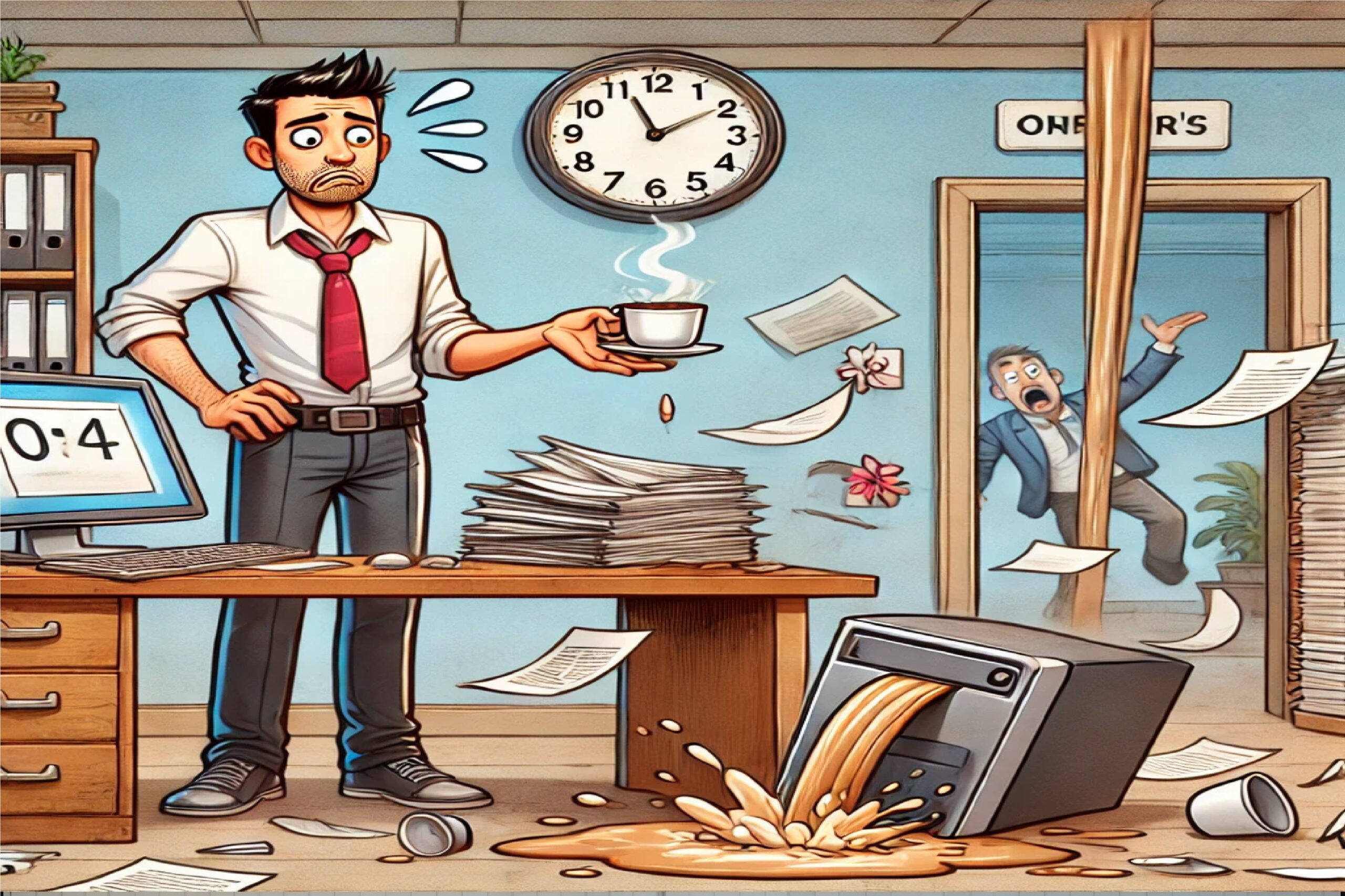Murphy’s Law is a humorous and often cynical principle that describes the tendency of events to go wrong at the worst possible moment. The central phrase, often cited, is: “Anything that can go wrong, will go wrong.” This concept has become a staple of popular culture and applies to various aspects of everyday life, whether in technology, science, or even human interactions.
The Origin of Murphy’s Law
The first known mention of Murphy’s Law dates back to 1949, in the context of aeronautics. Edward A. Murphy Jr., an engineer working on acceleration tests for the U.S. Air Force, formulated this rule to highlight the importance of reliability and thoroughness in technical systems. During one of the tests, a technician miswired some sensors, leading to a series of failures. Murphy is said to have remarked, “If anything can be done wrong, it will be.”
This realistic observation, though tinged with a touch of sarcasm, quickly spread through popular and scientific culture as “Murphy’s Law.” It became emblematic of the inevitability of human error or unforeseen situations.
Variations and Extensions of Murphy’s Law
Over time, many other laws and corollaries have evolved from Murphy’s original principle, each describing different shades of pessimism and irony when faced with adversity. Here are a few of the most popular:
- Finagle’s Law: A more general and humorous version stating, “Anything that can go wrong, will—at the worst possible moment.”
- The Law of Maximum Inconvenience: This states that problems always arise when you’re least prepared.
- Sod’s Law: A UK variant, often applied to social situations rather than technical ones: “If something can go wrong, it will, and in the most inconvenient way.”
These variations show that Murphy’s Law has transcended its technical roots to encompass multiple facets of human experience.
Everyday Examples
Murphy’s Law is often invoked humorously in a variety of situations where things seem to conspire against us. Here are some examples:
- Technology: Your phone dies or malfunctions right before an important meeting or call.
- Transportation: You’re in a hurry, and it’s precisely then that you hit traffic or your train gets canceled.
- Daily Life: You spill coffee on your clothes just before an important event.
Applications and Interpretations
While Murphy’s Law is often taken with a smile, it offers a deeper lesson about the nature of complex systems and risk management.
- Engineering and Reliability: In fields like engineering, aerospace, IT, and other sciences, Murphy’s Law serves as a reminder that preparing for worst-case scenarios is critical. By anticipating potential failures, engineers can minimize risks and improve system resilience.
- Psychology and Perception: Murphy’s Law also illustrates the negativity bias, where people tend to remember negative events more vividly than positive ones. This can reinforce the feeling that everything always goes wrong, even though positive outcomes are just as frequent.
- Project Management: In project management, Murphy’s Law is often factored into planning, where unforeseen complications are common. It’s recommended to build buffers for delays and unexpected issues.
Criticisms and Limits
While Murphy’s Law is widely popular, it has its critics. Some argue that these laws promote an unnecessarily pessimistic view of the world, a form of self-sabotage where people expect the worst to happen, which can lead to decision paralysis or fear of taking risks.
Others point out that these laws are more humorous than scientifically accurate. In reality, not everything goes wrong, and many aspects of everyday life unfold smoothly. However, Murphy’s Law draws its power from the universal frustration that everyone has felt when things go wrong at the worst time.
Murphy’s Law, despite its technical origins, has become a humorous framework for understanding and coping with the uncertainty and errors that arise in daily life. While it provides comic relief in stressful situations, it also highlights the importance of planning, prevention, and vigilance in managing systems and projects.
So, the next time something goes wrong, you can smile and think of Murphy and his famous dictum, while learning to better anticipate the unexpected. After all, the best response to Murphy’s Law is to prepare for the worst… while hoping for the best!

